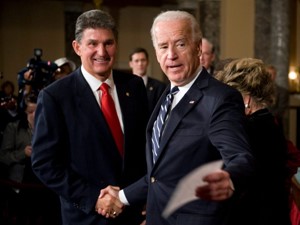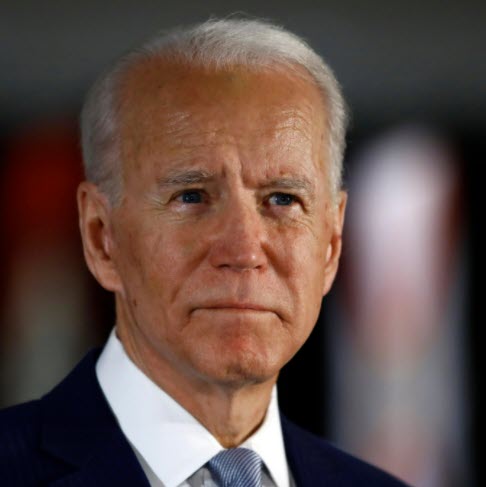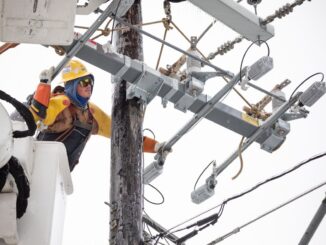
President Joe Biden is poised to sign into law a historic $1.2 trillion bipartisan infrastructure bill that could help modernize the electric grid and unlock billions of dollars for cutting-edge energy technologies, following passage by the US House of Representatives late Nov. 5.
The Infrastructure Investment and Jobs Act, which passed the Senate in August with key infrastructure priorities for Biden, is one part of the administration’s ambitious two-track approach to expedite the transition to a lower-carbon energy sector.
Provisions in the infrastructure bill leave the oil and gas sector some room to breathe while a budget reconciliation package still being negotiated by Democrats may ultimately include more robust climate and clean energy measures that could have a bigger impact on fossil fuel demand.
Biden Nov. 6 said he looked forward to signing the infrastructure bill soon. Democratic leaders in Congress also hope to soon advance the Build Back Better Act, as the House passed a rule early Nov. 6 that would allow for a vote on the massive spending package during the week of Nov. 15.
That bill incorporates major climate provisions, including a fee on methane emissions and new and extended clean energy tax credits. Democrats removed a proposal from the bill to create a national clean electricity performance program amid pushback from Senator Joe Manchin, Democrat-West Virginia, a moderate lawmaker from a coal- and natural gas-producing state.
Political victory
Although much work lies ahead for the White House and Congress on the climate agenda, the passage of the infrastructure bill is seen as a major political victory for Democrats.
“This bill will make historic and significant strides that take on the climate crisis,” Biden said. “It will build out the first-ever national network of electric vehicle charging stations across the country. We will get America off the sidelines on manufacturing solar panels, wind farms, batteries, and electric vehicles to grow these supply chains, reward companies for paying good wages and for sourcing their materials from here in the United States, and allow us to export these products and technologies to the world.”
A sliver of the bill’s $1.2 billion price tag would be paid for through a major drawdown of the Strategic Petroleum Reserve starting in 2028.
The bill calls on the Department of Energy to sell 87.6 million barrels of crude oil over four years to raise up to $6.1 billion. That volume represents about 14% of the SPR’s current inventory of 612.5 million barrels.
Electrification
Many of the policies align with Biden’s infrastructure priorities and underpin his goal to decarbonize the US power sector by 2035.
The package contains more than $65 billion for power infrastructure, of which nearly $29 billion is devoted to the electric grid, including transmission. Transmission advocates have said this falls short of what is needed to transition the US to a carbon-free grid. They are pushing for an investment tax credit for major transmission projects.
The infrastructure legislation also aims to ease permitting of large regional and interregional transmission projects, allowing the Federal Energy Regulatory Commission to approve certain projects in national-interest electric transmission corridors if a state commission denies them or has not decided.
The bill includes $7.5 billion to build out a network of electric vehicle charging stations and alternative fuel corridors and another $2.5 billion for the electrification of school buses.
Some wins for oil, gas
Of significance to the natural gas sector, a new grant program for EV charging and fueling infrastructure would reach beyond EVs to include natural gas fueling infrastructure, hydrogen fueling infrastructure, and propane fueling infrastructure. And a clean school bus program includes not only EVs but also LNG, compressed natural gas, hydrogen, propane, and biofuels, in the definition of alternative fuels.
Asphalt, the heaviest part of crude, could see a surge in demand as the infrastructure bill will provide record amounts of funding for highway improvements. It also provides five years of funding stability for the federal-aid highway program and other surface transportation programs.
And the bill seeks to make a dent in methane emissions, allotting $4.7 billion for plugging and reclaiming orphaned wells.
The Environmental Protection Agency has estimated there are more than 3.2 million abandoned wells, of which over 2.1 million are unplugged. The latest emissions data available from the EPA showed that abandoned oil and gas wells emitted 6.59 million mt CO2e in 2019, or roughly 2.3% of emissions from all gas- and petroleum-related systems in the US.
Clean energy technologies
On research and development of clean energy technologies, the bill calls for $12.5 billion for carbon capture programs, including $2.1 billion for CO2 transport infrastructure projects, and supports regionalized carbon capture hubs.
The legislation will also invest billions of dollars to build the foundation for a nationwide hydrogen network, including $8 billion over four years for the DOE to develop at least four clean hydrogen hubs, a network of regional suppliers and consumers, and infrastructure to connect them.
Notably, the bill’s definition of clean hydrogen allows for hydrogen supplied by a fossil fuel method coupled with carbon capture and storage alongside hydrogen produced through electrolysis from renewable or nuclear power.
Other energy-focused items include incentives to avoid the premature closure of nuclear power plants because of economic pressures, billions of dollars in grants for battery material processing, manufacturing, and recycling, and hundreds of millions of dollars invested into rare earth extraction and mineral mapping programs.



